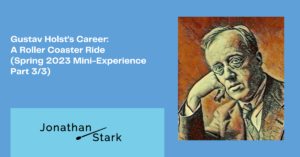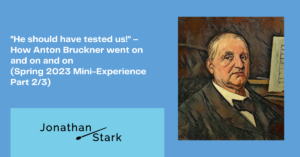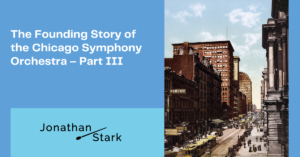There are classical composers who became famous very early in their lives. They celebrated success at a young age and met influential people. They were whiz kids.
But there are also composers whose careers have taken a completely different course. Not meteoric, but laborious or even bumpy.
More on that in a moment. First, let’s look at 3 typical whiz kids, so we know we’re all talking about the same thing….
Whiz kid #1: Mozart
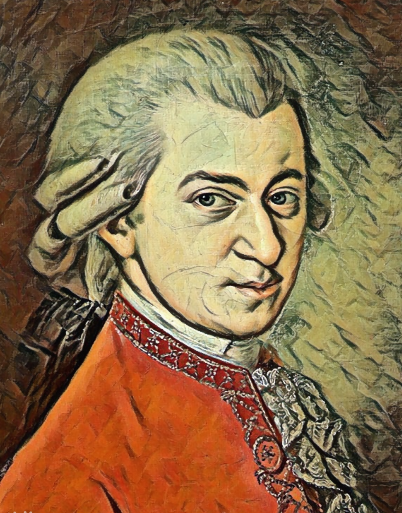
Did you immediately think of Mozart when you read the first paragraph? You’re not alone. When people think of early success in classical music, they usually think of Mozart first.
No question, not everything in Mozart’s youth was perfect. For example, he once blew an “entrance exam” in Italy (you wouldn’t believe it).
Nevertheless, Mozart’s early success cannot be argued away. By the time Mozart was of age, he had already made the acquaintance of all the rich and beautiful in Europe. At just 14, he was made a Knight of the Golden Spur by the Pope – which is (to this day) the second highest order for services to the Roman Catholic Church. That’s something.
Mozart is the “prototype” of a whiz kid. Many other whiz kids are in Mozart’s shadow. For example…
Whiz kid #2: Mendelssohn
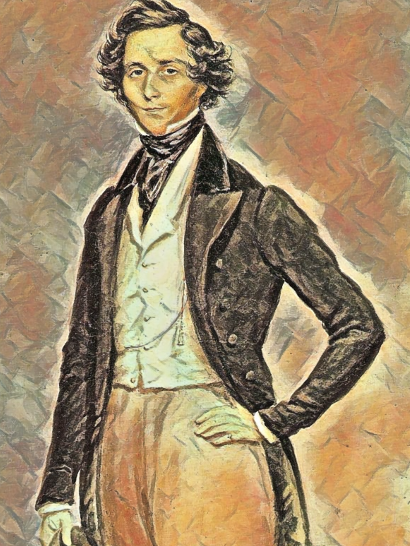
Felix Mendelssohn Bartholdy’s early success can be compared to Mozart’s. Not only did Mendelssohn make his first public appearance as a pianist at age 9, he also had influential friends early on:
At the age of 12 he met Goethe (wow!), at 16 he had already made the acquaintance of the then veeeery prominent composers Rossini, Meyerbeer and Cherubini.
Speaking of Rossini…
Whiz kid #3: Rossini
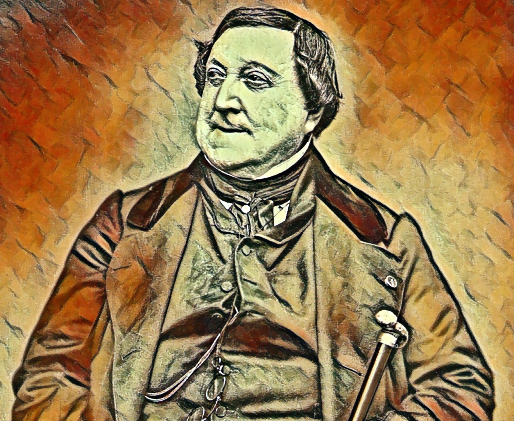
Rossini’s youth was not quite as brilliant as Mozart’s and Mendelssohn’s, he wrote his first successful opera (which was to be followed by many more) “only” at the age of 21. On the other hand, he achieved world fame so quickly that he stopped composing at the age of 38.
Yes, really.
After that he was a full-time gourmet. This is also evidenced by his corpulence (and the fact that he is the only composer presented here who does not fit into a portrait picture 😊). Not bad.
So Mozart, Mendelssohn and Rossini are 3 (of many!) examples of whiz kids: they crossed the public “perception threshold” early in their lives, which made them famous. In a chart (composer age/public perception), it would look like this:
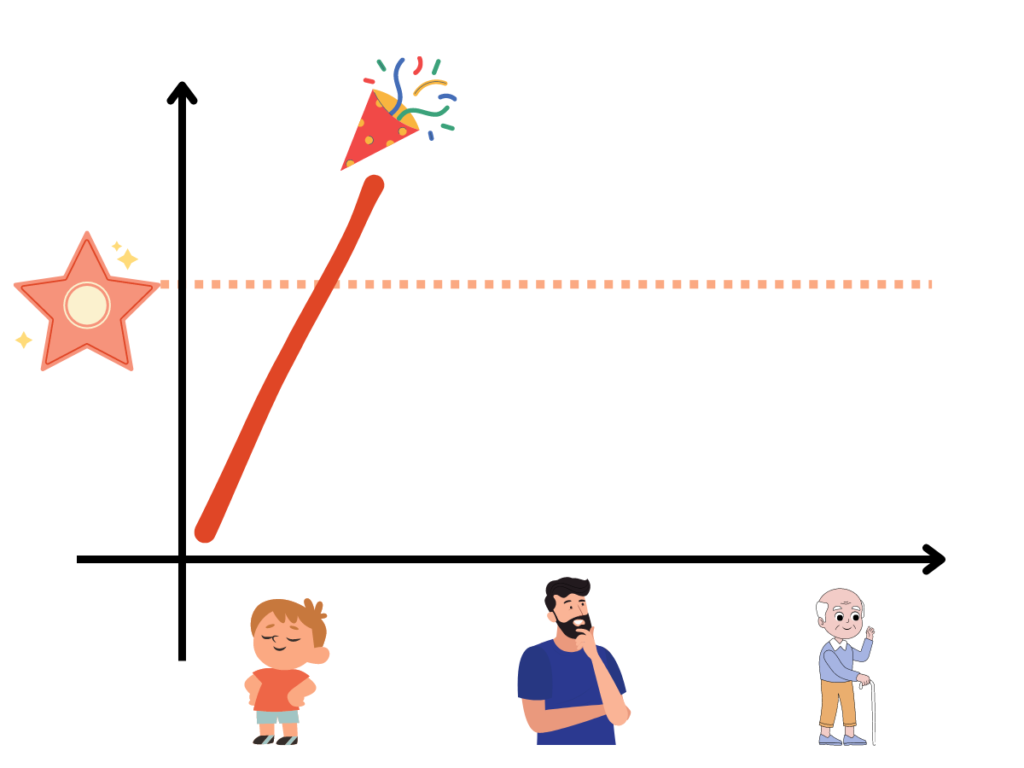
As I was creating this chart, a question literally jumped out at me. Do you feel the same way? When I look at the chart, I wonder….
...shouldn't there also be other career paths?
Shouldn’t there also be composers who didn’t have a vertical start, but whose career path looked different?
For example like this…
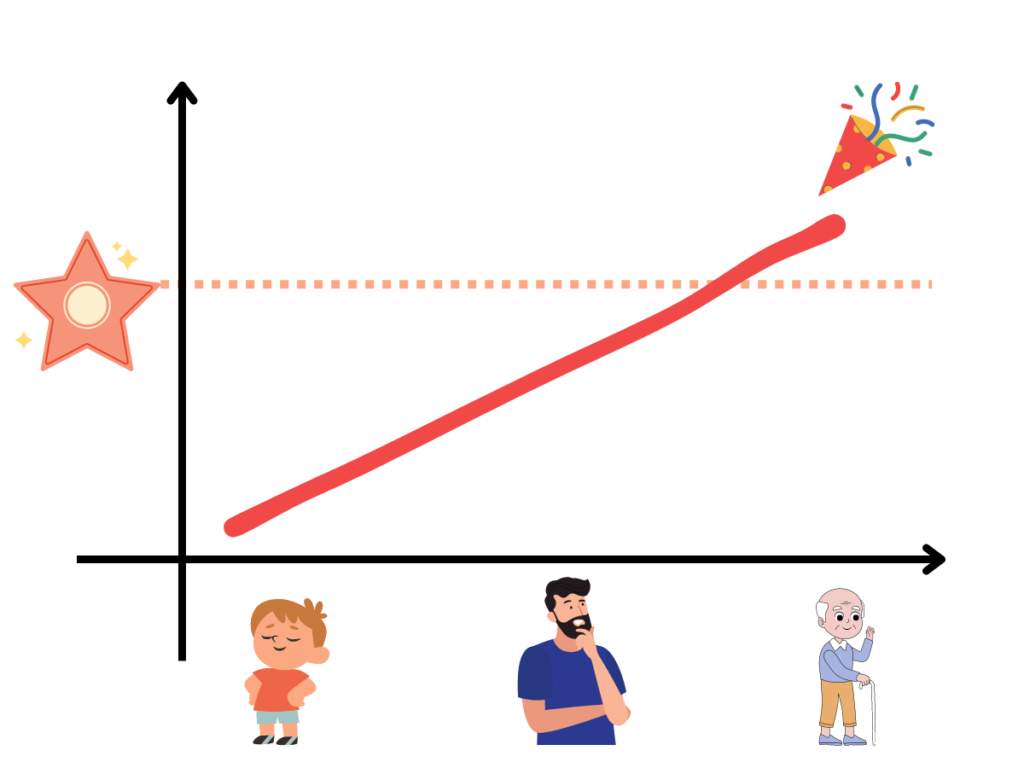
…a life full of work. Stone on stone. Unnoticed for decades. Then, at the very end: the breakthrough and finally the deserved recognition. Not a whiz kid, but a Prussian tin soldier.
Another possibility…
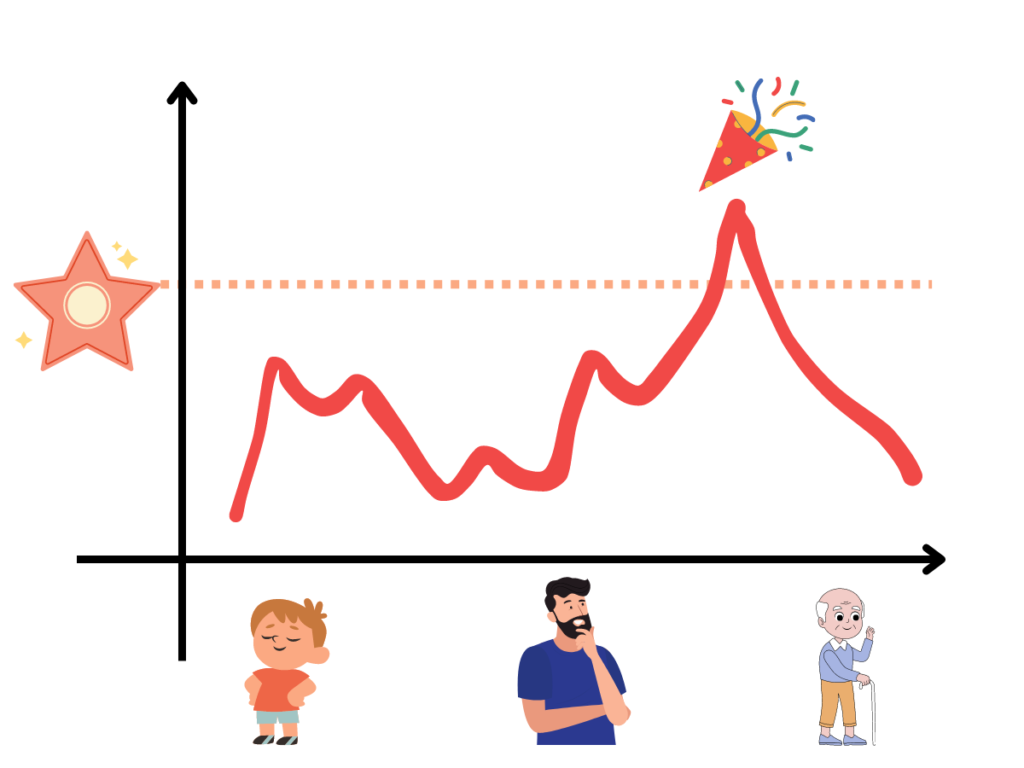
…a life of zigzags. Sometimes it looks like the breakthrough will come soon, then everything collapses again. Then, at some point, finally the breakthrough…only to be forgotten again. Not a whiz kid, not a Prussian tin soldier, but a roller coaster rider.
Why am I telling you this? Because whiz kids get most of the public attention. On the one hand, that’s justified (they’re great composers), but on the other hand, it’s a bit of a shame: there are at least as many composers who were tin soldiers or roller coaster riders.
So let’s give a platform to the tin soldiers and roller coaster riders. If you sympathize with the lives and careers of these composers, then the Spring 2023 Mini-Experience is made for you.
That’s because over the next two parts of this Mini-Experience, you’ll get to know a tin soldier and a roller coaster rider – and, of course, their central work that helped each of them achieve their breakthrough.
In Part 2, we’ll get started with a tin soldier….



